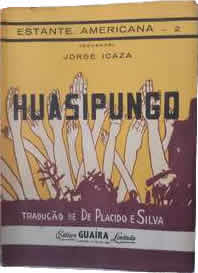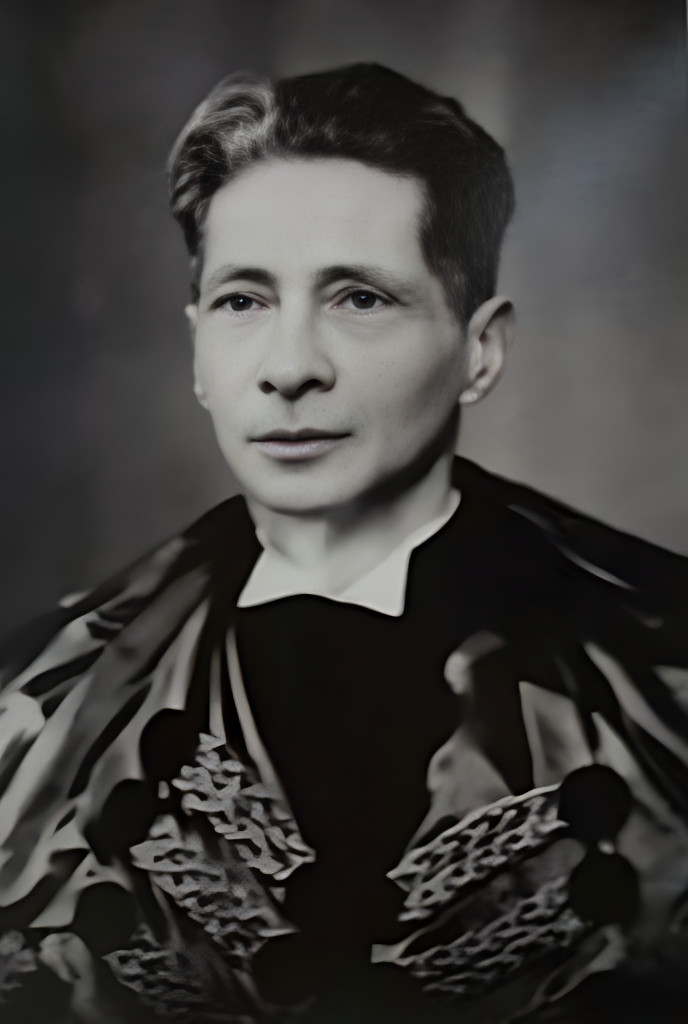Oscar Joseph de Plácido e Silva, known as De Plácido e Silva (Marechal Deodoro, Brazil, June 18, 1892 – Curitiba, Brazil, January 16, 1963) was a Brazilian jurist, writer, editor, translator, publisher, teacher, and businessman. In 1939, he founded and directed a publishing house, Editora Guaíra, headquartered in Curitiba, Brazil. In 1940, he created the publishing house’s Estante Americana collection which was the first to feature Hispanic American novels by neighboring countries. The famous Brazilian novelist and translator, Jorge Amado, was asked for title suggestions and acted as a sort of unofficial director of the collection. Due to its powerful social critique, Amado recommended the inclusion of “Huasipungo,” a 1934 novel by Ecuadorian author Jorge Icaza. De Plácido e Silva translated and edited “Huasipungo” into Portuguese and wrote the preface for the book, which was dated June 1941. It was the book’s first-ever Portuguese translation; since then, two additional Portuguese translations have been made. It is worth noting that the collection’s most successful works were “Doña Bárbara,” by Venezuelan author Rómulo Gallegos (translated by Jorge Amado in 1940) and “Huasipungo” by Ecuadorian author Jorge Icaza (translated by De Plácido e Silva in 1941). A school in Pinhais, Brazil, “Colégio Estadual Oscar Joseph D’Plácido e Silva,” established in the year 2000, was named in his honor.
Editora Guaíra (Guaíra Publishing House)

De Plácido e Silva founded and was director of Editora Guaíra, which launched classic authors, such as Vinícius de Moraes, Joel Silveira, Rubem Braga, Mark Berkowitz, Romulo Gallegos (President of Venezuela), John dos Passos, Jorge Icaza, among others.
In 1939, De Plácido e Silva created Editora Guaíra’s Estante Americana collection which featured Spanish-to-Portuguese translations of South American novels. Jorge Amado was an unofficial director of this collection, offering both suggestions about which books should be translated and published, as well as translating some works himself, including “Doña Bárbara,” by Venezuelan author Rómulo Gallegos in 1941. Jorge Amado suggested “Huasipungo” by Jorge Icaza for translation, and Plácido e Silva rendered a Portuguese translation of the book in 1941 with a preface.
Descendants
Among De Plácido e Silva’s descendants are his daughter Juril De Plácido e Silva Carnasciali (also known as Juril Carnasciali, journalist, columnist for Gazeta do Povo (column “What’s going on in society”).
And also the current (2009) state deputy for Paraná Nelson Justus, former president of the Legislative Assembly, who is the grandson of De Plácido e Silva.
Honors and recognitions
- The Legislative Assembly of Paraná and the Consul General of the Republic of Senegal for Paraná and Santa Catarina paid tribute to Oscar Joseph de Plácido e Silva on November 20, 2009.
- In 2009, the Santa Cruz Colleges, of Curitiba-PR, gave the name of De Plácido e Silva to the Center for Legal Practice of the institution.
- He received posthumously, from the government of the state of Alagoas, the Doctor Pontes de Miranda Medal.
- There is a state school in Pinhais -PR whose name is Oscar Joseph Plácido e Silva State School.
- In 2005, at UniBrasil, the General Secretariat De Plácido e Silva was created, in posthumous honor of the lawyer, professor and journalist Oscar Joseph de Plácido e Silva.

